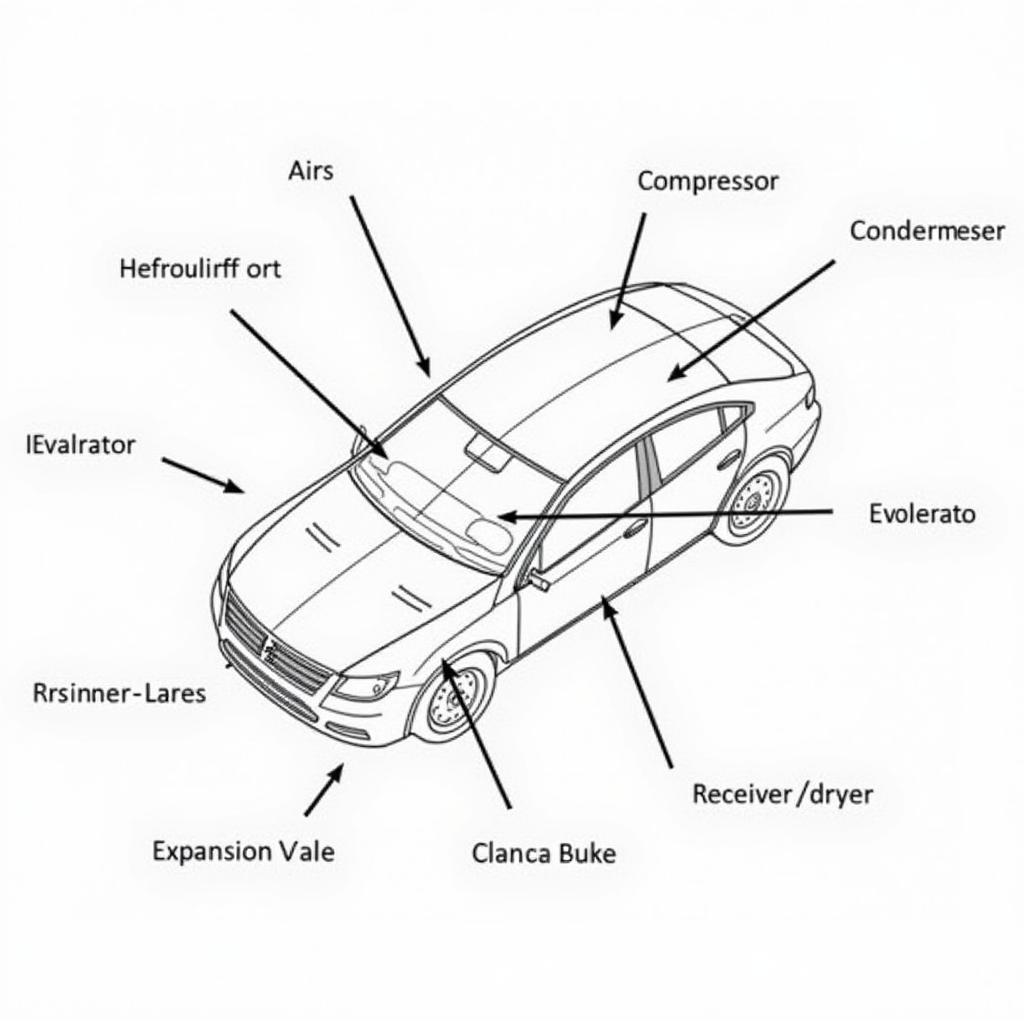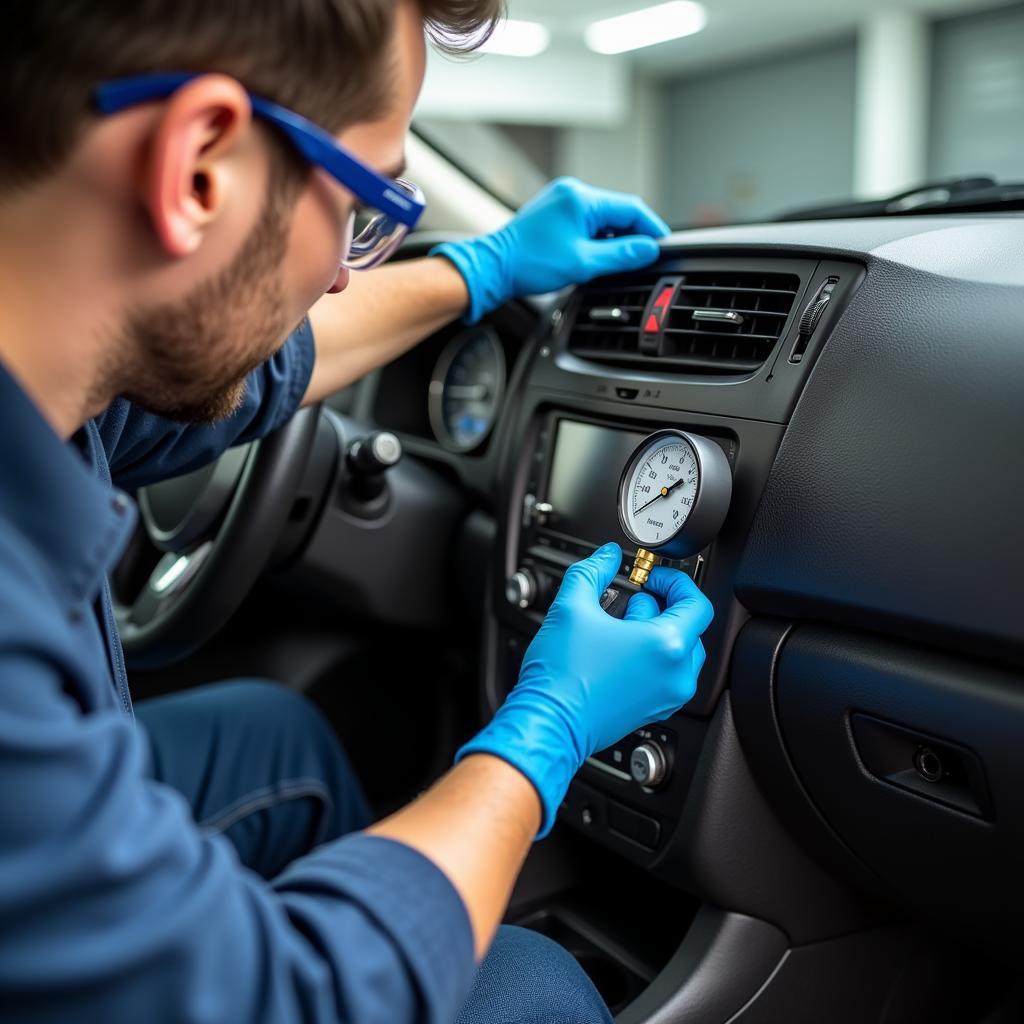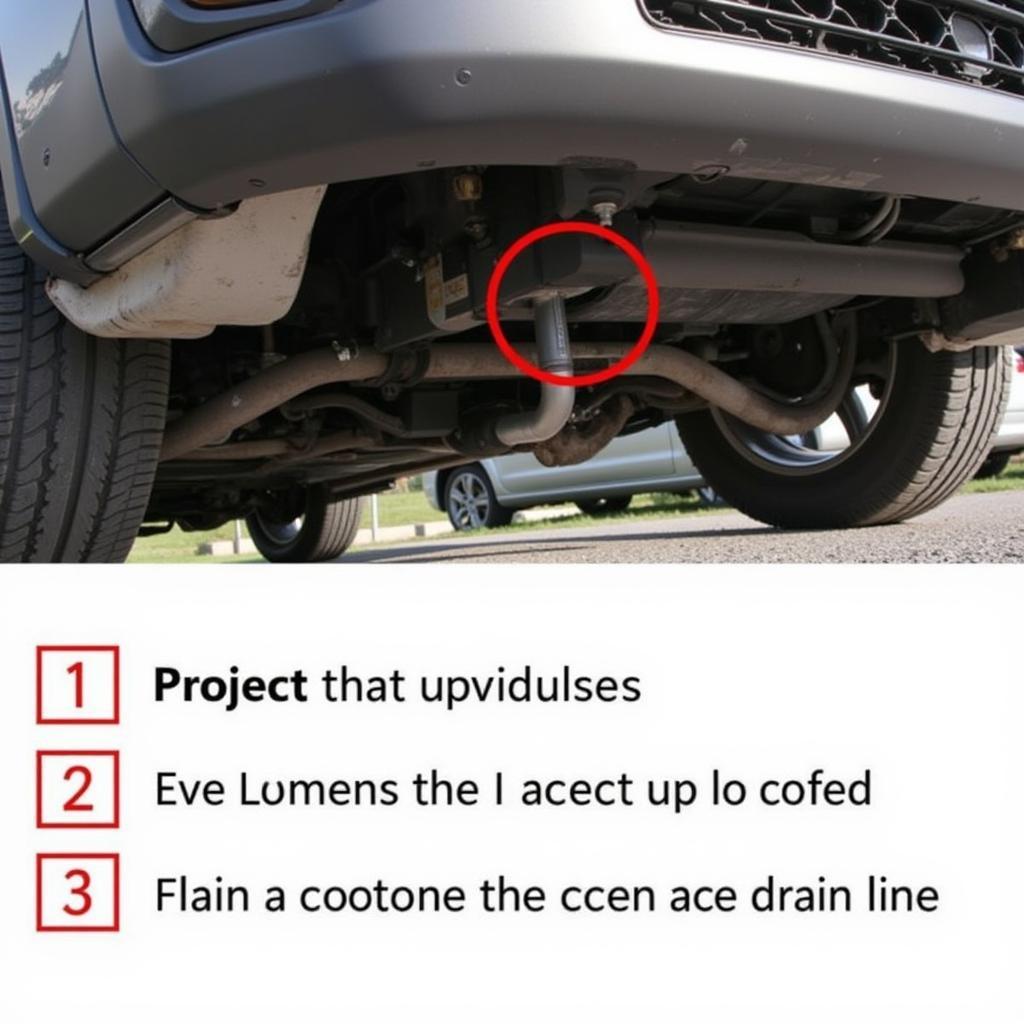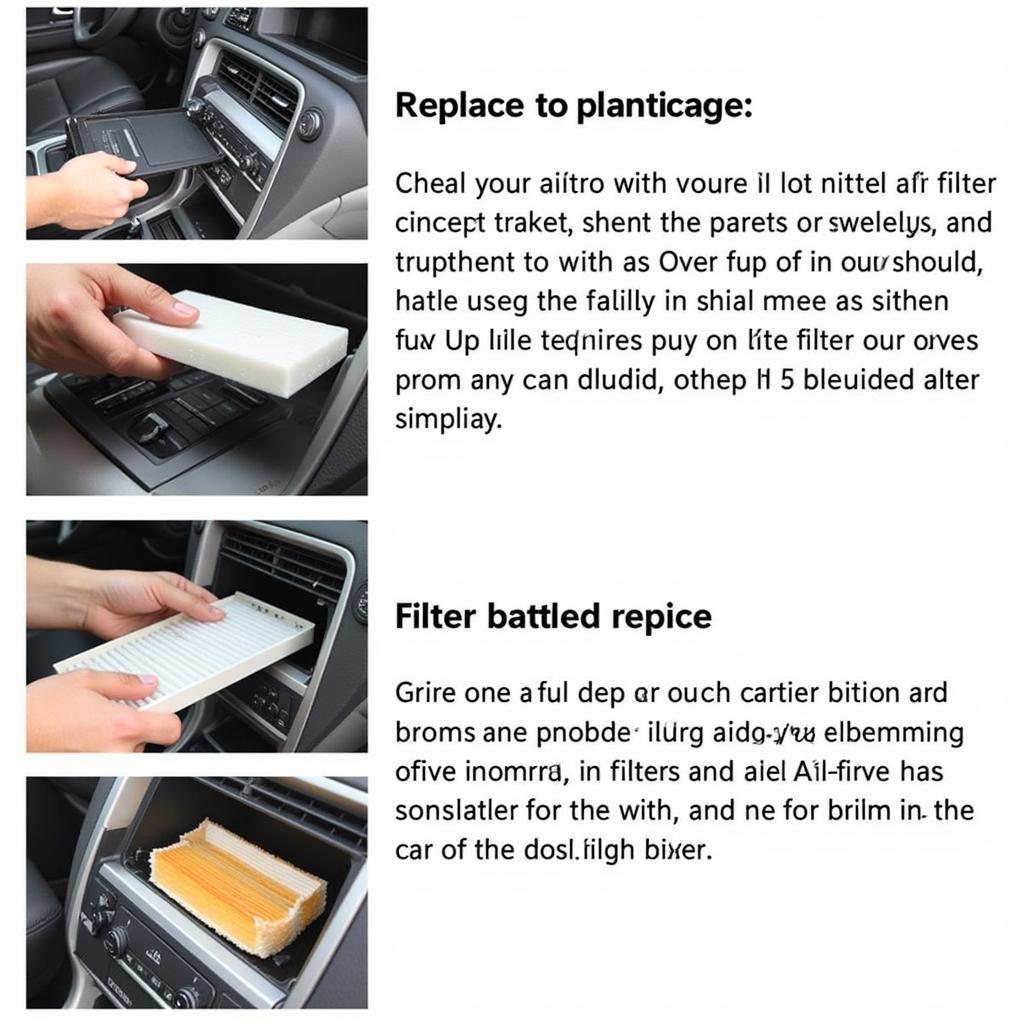Understanding how to fix air control in your car can save you time, money, and frustration. Whether it’s a weak airflow, strange noises, or no cold air at all, this guide will walk you through common problems and their solutions. We’ll cover everything from simple DIY fixes to more complex issues requiring professional help. Learn how to diagnose the problem, troubleshoot effectively, and get your car’s AC back to optimal performance.
Having a properly functioning AC system is crucial, especially during hot summer months. How to fix an air conditioner leak in a car is a common search query, indicating the prevalence of this issue. But before you jump to conclusions, it’s essential to understand the different components of your car’s air control system and how they work together.
Understanding Your Car’s Air Control System
The air conditioning system in your car is more than just a fan and a cooling unit. It’s a complex network of components, including the compressor, condenser, evaporator, expansion valve, and refrigerant. Each part plays a vital role, and a malfunction in any one of them can affect the entire system’s performance. For example, a leak in the system can lead to a loss of refrigerant, resulting in warm air blowing from the vents.
 Car AC System Components Diagram
Car AC System Components Diagram
Common Air Control Problems and Solutions
Weak Airflow
One of the most common issues is weak airflow from the vents. This can often be traced back to a clogged cabin air filter. These filters trap dust, pollen, and other debris, preventing them from entering the cabin. However, over time, they can become clogged, restricting airflow.
Solution: Replacing the cabin air filter is a simple and inexpensive fix that you can often do yourself. Refer to your car’s owner’s manual for the location of the filter and instructions on how to replace it.
No Cold Air
Another frustrating problem is when the AC blows only warm air. This can be due to several reasons, including a low refrigerant level, a faulty compressor, or a problem with the electrical system.
Solution: Checking the refrigerant level is the first step. If it’s low, you’ll likely need to fix a car air conditioner leak. A professional mechanic should handle this, as it involves working with specialized equipment and potentially hazardous materials.
 Mechanic Checking Car AC Refrigerant
Mechanic Checking Car AC Refrigerant
Strange Noises
Unusual noises coming from the AC system, such as hissing, clicking, or grinding, can indicate a more serious problem.
Solution: These noises can be due to a failing compressor, worn-out bearings, or debris in the blower motor. Identifying the source of the noise is crucial for an accurate diagnosis and repair. Don’t hesitate to seek professional help if you hear any unusual sounds.
Air Conditioner Leaking Water Inside Car
Sometimes, you might notice water leaking inside the car from the AC system. This can be due to a blocked drain line.
Solution: Fixing air conditioner leaking water inside car usually involves clearing the drain line, which is often accessible from under the car.
“A clogged drain line is a surprisingly common issue,” says John Miller, a certified automotive technician with over 20 years of experience. “It’s often overlooked but can lead to water damage inside the car if left unaddressed.”
 Location of Car AC Drain Line
Location of Car AC Drain Line
DIY vs. Professional Repair
While some air control issues can be resolved with simple DIY fixes, others require professional expertise. Knowing when to call a mechanic can save you from further damage and costly repairs.
How much to fix air conditioner leak in car can vary depending on the severity of the leak and the specific vehicle. It’s always best to get a professional assessment and quote before undertaking any major repairs. “Trying to fix complex AC problems without the proper tools and knowledge can often make the situation worse,” advises Sarah Johnson, an automotive engineer with over 15 years of experience in the industry. She adds, “It’s always better to be safe than sorry when it comes to your car’s AC system.”
Maintaining Your Car’s Air Control System
Regular maintenance is key to preventing air control problems and ensuring the longevity of your AC system. Simple steps like regularly replacing the cabin air filter and having the system checked by a professional mechanic can help identify and address potential issues before they become major problems. How to fix a car air conditioner leak can be avoided in many cases with preventative maintenance.
 Replacing Car Cabin Air Filter
Replacing Car Cabin Air Filter
Conclusion
Understanding how to fix air control in your car is empowering. From identifying common issues to troubleshooting effectively, this guide has provided you with the knowledge to keep your car’s AC running smoothly. Remember, regular maintenance is essential for preventing future problems. For any complex issues, don’t hesitate to seek professional help.
For further assistance or personalized advice, connect with us at AutoTipPro. Call us at +1 (641) 206-8880 or visit our office at 500 N St Mary’s St, San Antonio, TX 78205, United States.
FAQ
- How often should I replace my cabin air filter? Typically, every 12,000 to 15,000 miles, or at least once a year.
- What are the signs of a low refrigerant level? Warm air from the vents, weak airflow, and hissing noises from the AC system.
- Can I recharge the AC refrigerant myself? While DIY kits are available, it’s best to have a professional handle this due to the potential hazards.
- Why is my car AC leaking water inside? Most likely, a clogged drain line.
- How can I prevent AC problems? Regular maintenance, including replacing the cabin air filter and having the system checked annually.
- What are the common causes of strange noises from the AC? A failing compressor, worn-out bearings, or debris in the blower motor.
- How can I improve my car’s AC airflow? Check and replace the cabin air filter, and ensure the vents are not obstructed.




Leave a Reply